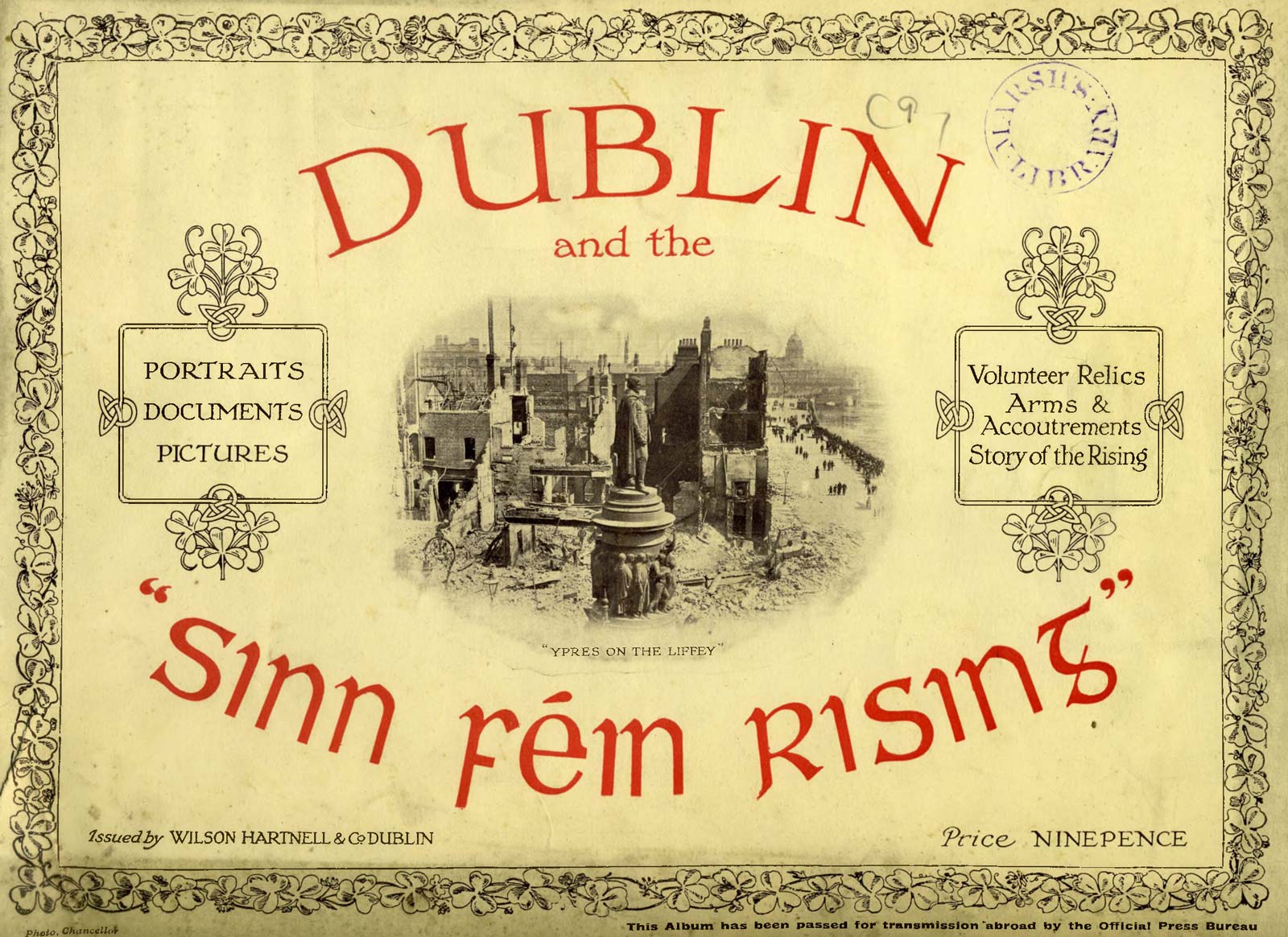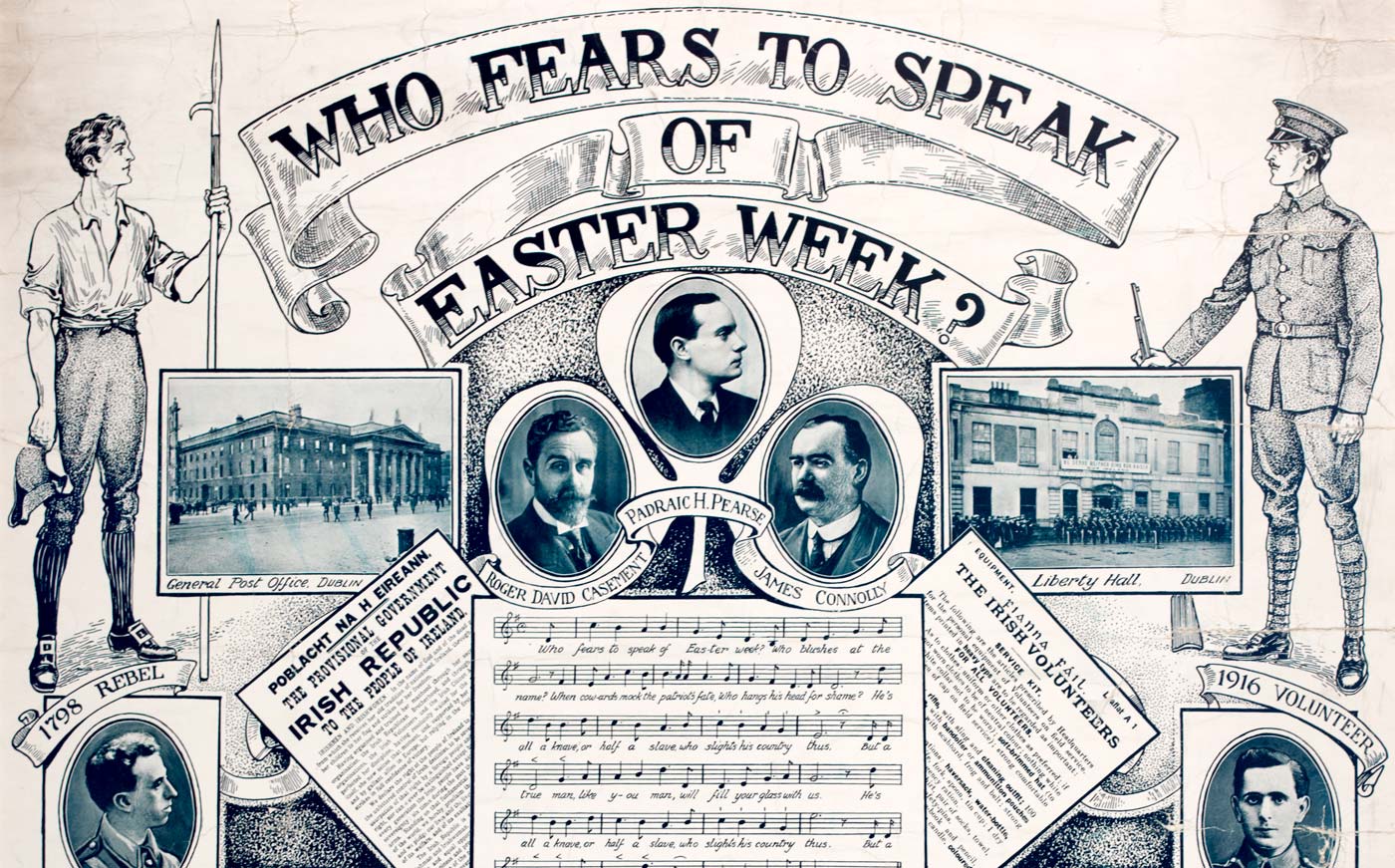Easter Rising anniversary marked around the country
The Curragh, 23 April 1917 - The head of the British army in Ireland, Lt Gen. Sir Bryan Mahon has taken steps to discourage groups of republicans from organising any events to mark the anniversary of the Easter Rising.
Gen. Mahon issued a proclamation prohibiting, until 13 May, the holding of any public meeting or procession within the police district of Dublin in the belief that such assemblages will ‘give rise to grave disorder, and will thereby cause undue demands to be made upon the police or military forces’.

Lt Gen. Sir Bryan Mahon, head of the British army in Ireland (Image: Irish Life, 26 Nov 1916. Full collection of Irish Life available at the National Library of Ireland)
Republican flags have been seen flying in various parts of Dublin and the sale of Republican paraphernalia and memorabilia is drawing a large crowd. Wreath laying at Republican graves is continuing across the weekend.
Soldiers court-martialled
Earlier in the week, three soldiers, Privates J. Healy, J.
O’Brien and M. Noonan, were court-martialled for assaulting
police officers who had confronted them for singing the song:
‘Who fears to speak of Easter Week?’.
Illustrated copy of the lyrics and music of 'Who fears to speak of Easter Week?' Click to enlarge. (Image: National Library of Ireland)
All the men denied singing the song, claiming instead they were singing about the 18th Royal Irish Regiment, in which they had previously served. They further claimed that the one of the constables in question had followed them, calling them dogs, and had threatened to break their necks.
The verdict was delivered in private.
Bishop of Cork
In Cork, Bishop Colohan asked that no street demonstrations
accompany the memorial masses in the city’s churches.
Despite this, a crowd of about 600 marched and sang in Irish, a
number of them wearing republican badges and rosettes. A police
baton charge discharged the crowd, amid a hail of stones.
[Editor's note: This is an article from Century Ireland, a fortnightly online newspaper, written from the perspective of a journalist 100 years ago, based on news reports of the time.]






















